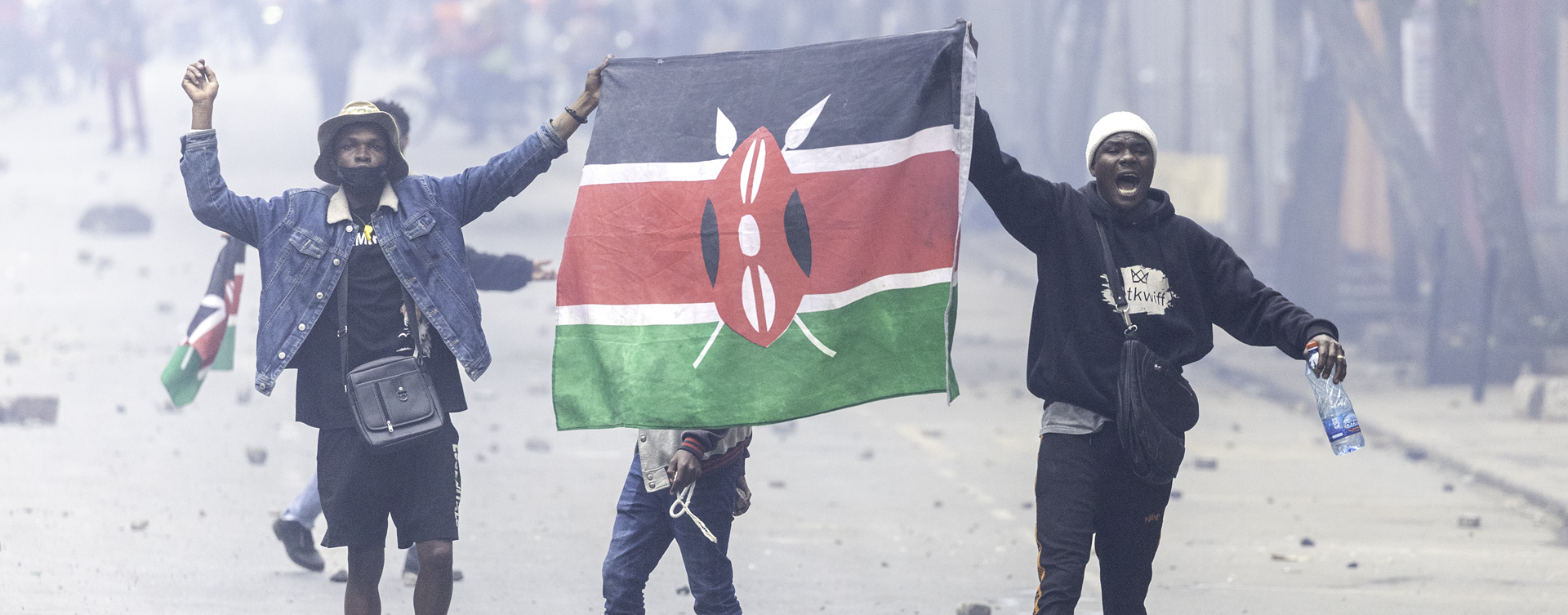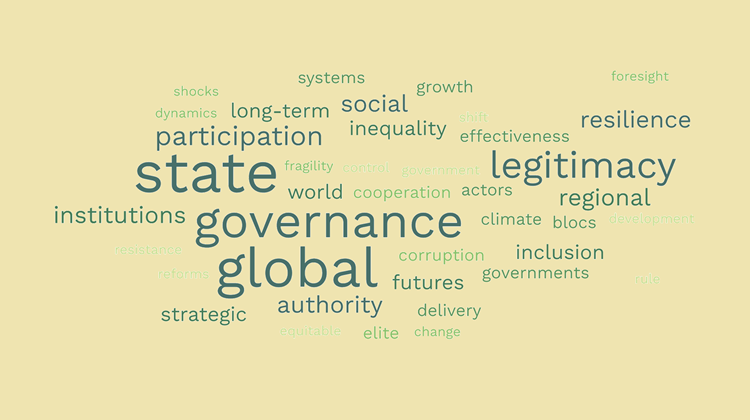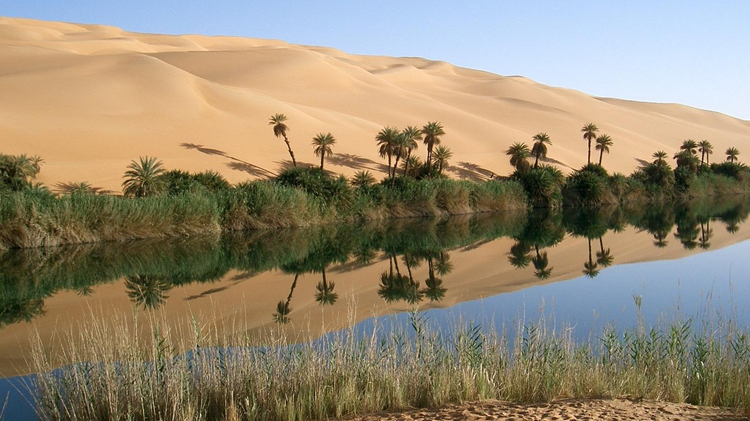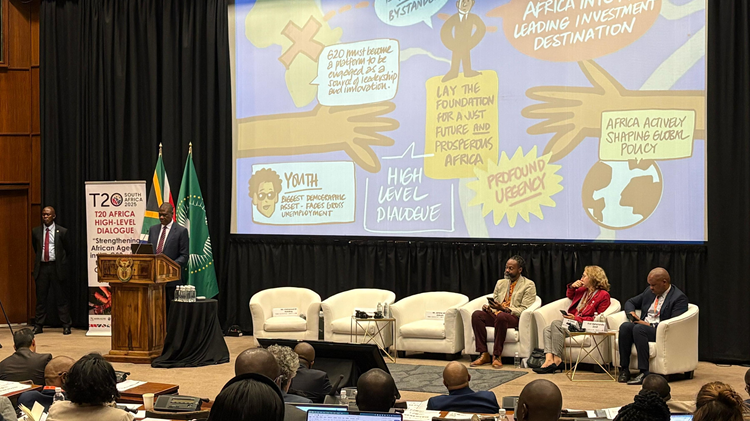The Moral Economy of the African Crowd

Recent protests in Kenya signal a shift from ethnic-based to interest-based politics which could have broader implications for the region.
The recent protests in Kenya mark a turning point in Kenya’s, and perhaps Africa’s, political trajectory. Changes were already apparent in Kenya’s last elections, which showed a growing number of Kenyans turning away from ethnic-based voting towards class and interest-based voting. The tax protests take this a step further, giving voice to those who felt ignored and disenfranchised by the government’s decisions. The crowd, through their protests, have exerted an influence beyond the traditional patronage networks. How did this happen? Will it have a lasting impact? And will it spread to other African countries?
In 1971, the British historian E.P. Thompson published an article titled ‘The Moral Economy of the English Crowd in the 18th Century.’ It argued that the riots, especially bread riots, that plagued 18th-century British politics reflected not so much the disorder of agitators, looters and hooligans, as contemporary politicians liked to paint them, but the attempt by ordinary poor people to enforce the laws and customs that protected their livelihoods and made life affordable for them. Their targets were traders and magistrates who ignored the rules for their own profit. The state nevertheless saw them as a threat and responded with repression. It took decades for the protesters to organise themselves politically and campaign successfully for the vote as a more effective way for their voices to be heard.
The recent Kenyan protests were linked to similar concerns, in this case rising prices caused by tax increases, but with one big difference: it was not just the poor protesting but the middle classes, the mobile phone-owning, digitally-mobilised youth of Gen Z. This is much more politically threatening to the status quo.
While the immediate target was to rescind the proposed tax increases, which would have immediately impacted the cost of living for all Kenyans, the protests were focused as much on the endemic corruption amongst the political and business elite, including Ruto’s immediate circle, as on the IMF, which approved the tax increases to pay off the accumulated debts of the past. The elite’s affluent lifestyle, flaunted on social media and impervious to the tax hikes, simply rubbed salt in the wound.
Above all, protesters were making the point that the taxes proposed in the budget were unfair. Not only were they retrogressive, impacting more heavily on the poor, but they were designed to raise money to repay loans from which the elite had grown fat and from which the middle and lower classes had derived little tangible benefit. Sure, there was now another train line to Mombasa; but that didn’t provide them with jobs, or help them cover the rising cost of living.
It was not just the poor protesting but the middle classes, the mobile phone-owning, digitally-mobilised youth of Gen Z
President Ruto initially condemned the protests as the ‘treasonous’ actions of ‘criminal’ elements and sent in the army to ‘restore order’, killing some 39 protesters in the process. There is still an argument over whether the looting of shops and burning of the Parliament building was caused by hired vandals brought in to discredit the protests and provide a justification for repression, or by some protesters simply expressing their anger or taking advantage of the situation. In practice, it doesn’t matter: the damage was done and the country was shocked.
Ruto is finding out that in a society with a degree of accountability, protest that deteriorates into disorder is what Thompson calls a ‘social calamity’: it destroys existing social and political relations on which political stability is built. Under an authoritarian government, those in power have little compunction in deploying force to repress dissent: they rule by fear, and this simply reinforces the intimidation of society. Opposition leaders and dissidents can be rounded up, beaten, imprisoned or killed without it threatening their dominance.
But where the government is by consent, the authorities need to protect their legitimacy. The question is, whose consent? Kenya is a democracy, and Ruto became President in an election in 2022 declared adequately free and fair. The budget was approved by a democratically-elected Parliament. And yet people still took to the streets in protest.
As Peter Lockwood has argued, Kenyan politics is already moving away from ethnically-based voting, where people trust only someone from their own region and ethnic group to represent them, towards interest-based voting. Ruto’s success among Kikuyu voters was based partly on his appeal to the ‘hustlers’: the poor, the street vendors, the disadvantaged who wanted to believe he would help them. But it was also based on their disenchantment with Uhuru Kenyatta’s ‘elite capitalism’ and Kenya’s patron-client politics (neo-patrimonialism for political scientists), in which political support for the President buys access to lucrative business opportunities. As in 18th century England, corruption (‘Old Corruption’ as it was called then) is integral to the political system: it is how political loyalty is bought and political patrons secure money to satisfy their clients. But it only works where constituencies can be bought off in this way. Where a political system is sewn up through such patronage, the only way for those outside the system to make their voices heard is in the street.
What underpinned the protests of the crowds in Nairobi and throughout the country was that Ruto had not changed this political process but simply shifted the benefit to his friends and political allies. Not just the hustlers but Kenya’s growing middle classes are suffering from the inflation that debt-fuelled spending and the falling shilling have brought. They saw no reason to suffer higher taxes to pay off the debts that were accumulated without their agreement or benefit. Ruto had done little to prepare the political ground for his debt strategy – either through the tax-and-pay-back approach approved by the IMF or the cut-and-pay policy he is now proposing.
In Britain’s recent election, neither party was willing to admit that Brexit was substantially responsible for the country’s economic woes: the subject was too toxic to raise, seen as a vote loser by both sides. The problem therefore remains unaddressed. So too in Kenya, no one seems willing to admit that it is the imprudent borrowing and incompetent investment by the previous government (in which Ruto was Vice-President) which fuelled the debt crisis that now dominates budget policy. Far easier to blame the international financial system – which has its share of blame, but where the inequality is less immediately visible to Kenyans than is the unfair affluence of their own elite.
Being forced first to withdraw the budget and now to re-structure his whole cabinet shows that Ruto has registered the need to re-establish his legitimacy by bringing in a wider range of political forces to the government. But until the policy issue is debated honestly in public, Ruto’s government will remain vulnerable to popular protest, whoever is co-opted into the cabinet. The moral authority of the crowd has been asserted: it will not disappear, even if it is no longer on the street.
Kenya is not alone in facing this kind of economic crunch over debt, but others have handled it differently. Ghana and Zambia both chose to default and restructure their debt obligations rather than try to meet the unaffordable repayments by drastically raising taxes or cutting spending. The cost for these countries has been excluded from global capital markets and weakened currencies, but they have so far avoided riots. The issue is already a critical one in the Ghanaian elections due in December, so the debate there cannot be avoided.
The moral authority of the crowd has been asserted: it will not disappear, even if it is no longer on the street
Senegal’s elections earlier this year posed a political rather than economic challenge, but it was as much the people on the street as the phone calls from global leaders that finally persuaded Macky Sall to allow the elections to go ahead and hand over the Presidency peacefully to opposition leader Diomaye Faye who stood on a strong anti-corruption platform. In Senegal too, the elite had to listen to the crowd, which now has a leader it trusts.
In Uganda also the crowd has taken up the anti-corruption message and taken to the streets. As in Kenya, the authorities have responded with repression, but their legitimacy is put at risk. Just as coups spread across the Sahelian countries reflecting people’s unhappiness with their ruling elites, in African countries with more robust civil societies, popular protest is spreading demanding more democratic change.
Nigeria is the African country currently most vulnerable to such popular protests. The #EndSARS protests in October 2020 already demonstrated the ability of young Nigerians to mobilise public protest against what was seen as a recurrent injustice of arbitrary arrest by the police. Though it came to an abrupt end after the ‘Lekki Gate massacre’ and the state has taken extensive steps to discourage such protests since, the mobilisation of middle-class opinion fed through into Peter Obi’s strong showing in the 2022 Nigerian elections.
The Nigerian state, even more than the Kenyan, revolves around patronage networks lubricated by access to state funds. The dependence on oil revenue has meant that personal and trade taxation in Kenya is negligible. The tax take is reported to have risen from 6.7% of GDP in 2021 (OECD) to 10.8% in 2023 (government adviser), but this is as likely to reflect that Nigeria’s measured GDP has fallen sharply since the last election, and is still amongst the lowest in the world. But people do care about the cost of living, the removal of fuel subsidies, and the falling value of the Naira – all of which underpinned the general strikes called by Nigerian unions in May and June this year, demanding a raise in the minimum wage. If nothing is done about it sooner rather than later, the Nigerian crowd could take to the streets once more to demand action from a government that has so far failed to deliver.
For now, Tinubu’s government seem to believe that maintaining the patronage networks is more important for their political survival than fending off public protest and that the corruption underpinning those networks can be left in place. Given the size, diversity and devolution of Nigeria’s political system, that may be right – for now. But the risk is that if things do not improve very soon, protests will break out and the authorities may lose political control completely in some areas which they will find very hard to restore without more drastic political and economic reform. Only time will tell.
Image: Joshua Wanyama/Dreamstime






